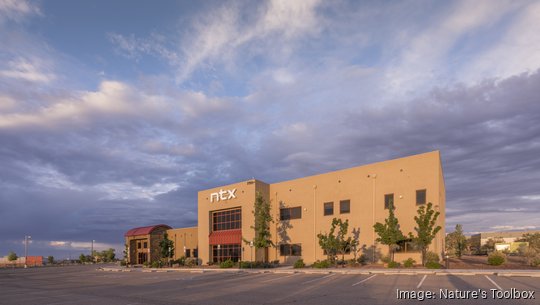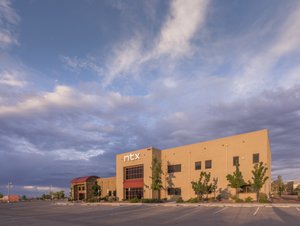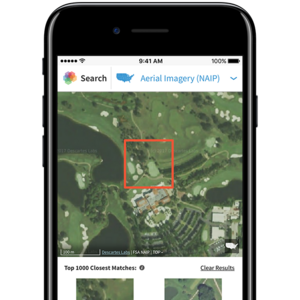
The past 12 months have seen a notable increase in momentum surrounding startups, technology, innovation and venture capital in New Mexico — and not just because Christopher Nolan's "Oppenheimer" brought lots of public attention to one of the state's national laboratories and Alamogordo'stesting ground.
Big companies, including Singapore-based Maxeon Solar Technologies Ltd. (NASDAQ: MAXN), Australia's Star Scientific Ltd. and Germany-based Mtex Atenna Technology have picked the Land of Enchantment for manufacturing operations. National venture firms have turned their eyes to the state, traveling to New Mexico for tech-focused events in Albuquerque, north to Los Alamos and south at the Borderplex. An energy transition continues to unfold, with innovative technologies paving the way for burgeoning renewable industries.
If 2023 was a year of people and companies planting their flags in New Mexico, the year ahead is poised to be a bit of a wait-and-see one for the state, as plans laid down in the past 12 months begin to unfold. With that being said, here are three trends New Mexico Inno will be looking out for in 2024.
A year of transition for Spaceport America — and for Virgin Galactic
2023 was a milestone year for Virgin Galactic (NYSE: SPCE), the pioneering space tourism company that runs its flight operations out of New Mexico's Spaceport America.
The Mojave, California-based company's year kicked off when its "mothership," VMS Eve, flew from the California city to the Southern New Mexico Spaceport, following a series of mechanical upgrades.
After a slight hiccup related to a separate company under the Virgin Group, Virgin Galactic ran a successful test flight of its VSS Unity spaceship, the craft that carries passengers into zero-gravity and then back down to Earth. That test was the precursor to a series of further successful flights out of Spaceport America in 2023 — first with a crew of in-house mission specialists, and then, for the first time, with a crop of commercial customers.
June's inaugural commercial mission, with a crew of Italian Air Force officers and an Italian researcher, was the first of five total commercial spaceflights in 2023 — what has been the long-time goal of the space tourism and research company. It's next after the June flight was Virgin Galactic's first with a private astronaut crew, a mission dubbed "Galactic 02" that launched from Spaceport America on Aug. 10.

But following Virgin Galactic's fifth commercial mission of 2023 on Nov. 2, the company announced some big changes. CEO Michael Colglazier announced in a company-wide email Nov. 7 that Virgin was laying off employees to focus company resources on readying its next-generation of spaceships, called the "Delta" class, for commercial service. In New Mexico, 73 Virgin Galactic employees were affected, and 185 in total, or about 18% of the company's total workforce.
Along with that "strategic realignment" came big news for Virgin Galactic operations at Spaceport America. Colglazier, during a Nov. 8 earnings call, said the company plans to halt flights out of the Spaceport in mid-2024, following two more commercial missions — one set for January, and another in the second quarter next year. After those two missions, the next flights out of New Mexico could be tests of Virgin's Delta-class ships, currently scheduled to start flight tests in mid-2025.
That big realignment news caught the attention of investors, New Mexico stakeholders and Spaceport America officials. For a company that seemed as if its business model was finally hitting its stride, 2024 looks set to be a year of somewhat unexpected transition.
What does that mean for Spaceport America, the $200 million-plus state investment built in large part around Virgin Galactic's operations? It's unclear. Executive Director Scott McLaughlin and Business Development Director Francisco Pallares have emphasized the need to diversify the Spaceport's business around Virgin Galactic, finding more tenants and other aerospace companies to run operations at the large facility near Truth or Consequences.
Whether the Spaceport will make significant strides to attract more business in 2024 remains to be seen. But one thing's for sure — the nearly two-decades-old, state-funded aerospace facility will continue to be the subject of attention for enthusiasts, stakeholders and legislators in the year ahead.
Venture bets on the state start to see play
New Mexico's State Investment Council — the institutional investment body that manages and deploys billions in permanent and governmental funds for the state — made national headlines late last year when it pledged $100 million to upstart deep tech venture firm America's Frontier Fund.
The first investment out of America's Frontier Fund's first fund, for $10 million, went to Roadrunner Venture Studios — a separate firm tasked with finding promising technologies at national laboratories and research universities and spinning them into successful startups.
While Roadrunner's work is expected to eventually span across the country, with a recent studio announced in New Jersey, the firm's first studio and headquarters is in Albuquerque, at a 10,000-square-foot building in the city's Innovation District, near other company headquarters like Build With Robots and innovative spaces like the Lobo Rainforest Building and WESST's Enterprise Center.
Roadrunner unveiled its first set of three portfolio companies at a technology forum in early December, the same day it showed off its completed studio to New Mexico's startup and technology community. Those startups, in industries including hydrogen technology, artificial intelligence and vaccine storage, will get access to advisory support, customer discovery assistance and fundraising help through the venture studio, as well as access to studio space.
That tech forum came about five months after Roadrunner first introduced itself to New Mexico at a showcase event in late June.

With its promise to build successful startups in the state, big-name backing and State Investment Council support, there are a lot of eyes on how Roadrunner will progress in 2024 after its inaugural year in operation. Its President, Adam Hammer, is keenly aware of the venture studio's need to move fast.
But Roadrunner isn't the only venture player that made moves in 2023. FedTech, a Washington, D.C.-based firm, partnered with Albuquerque's Sandia National Laboratories this year to build energy-focused startups through a U.S. Department of Energy-funded program. That program, called the Boost Platform, recently showed off nine companies it has helped develop over the past several months to meet community needs in both New Mexico and Alaska.
The State Investment Council (SIC) has also continued its aggressive activity over the past 12 months, making commitments to venture funds both within the state and outside New Mexico, all with the hope of eventual investments in the Land of Enchantment. Firms to get SIC commitments in 2023 include Albuquerque-based Tramway Ventures, San Francisco's At One Ventures and, most recently, Dangerous Ventures, a newer firm based in Santa Fe — among many others.
The past year has been a slow one for venture deals, both in New Mexico and across the country. Expect to see an increased deal flow across the state in 2024, as venture firms at play here — and down in neighboring Bordplex hub El Paso — start to deploy their capital.
Also, be on the lookout for more SIC commitments, as the sovereign wealth fund finds new and existing firms in New Mexico and outside the state to pump chunks of money into — whether it be $10 million, $40 million or $100 million.
Momentum for life science companies, continued
One of New Mexico Inno's predictions last year was that health care and bioscience companies would pull in more money. That prediction turned out to be true, with several of the state's largest funding rounds in 2023 going to bioscience firms.
For example, Rio Rancho-based biotech company Nature's Toolbox raised $47.5 million in a Series B round, announced in November. Albuquerque-based BioFlyte, a biothreat surveillance firm, pulled in $5.4 million in early August. Santa Fe's Mercury Bio and Albuquerque's Circular Genomics both closed their own funding rounds in 2023, too, totaling $2 million and $1.5 million, respectively.
And, somewhat adjacent to those health care-focused bioscience firms, Trait Biosciences, a cannabinoid research startup based in Santa Fe, raised $3.69 million to help scale its operations at a new facility.

There's little reason to expect this industry-specific funding trend to slow down in New Mexico, especially as one of the state's most prominent health care technology companies, Las Cruces-based Electronic Caregiver, pursues a $100 million financing round that's yet to close.
Legislative support, too, could see more money flow into bioscience firms. That's because the New Mexico Bioscience Authority, a collaborative bioscience industry-focused nonprofit tasked with growing the sector in the state, wants government backing for a bioscience co-investment fund.
New Mexico Gov. Michelle Lujan Grisham vetoed a version of a bill that would have set up a "bioscience development fund," which, when matched with private investment dollars, would have seen $50 million total dedicated to bioscience companies in the state.
But leaders in the sector expect momentum around that fund to continue into future legislative sessions. State-supported co-investment is what's needed to push the development of the bioscience sector in the state even further, Stephanie Tofighi, the Bioscience Authority's executive director, told New Mexico Inno over the summer.
Whether or not such a bill is adopted remains up in the air. But the unanimous backing for the earlier version of the bill shows support is there to see additional dollars flow to promising bioscience firms in New Mexico.









